One of the most ubiquitous figures in the history of science in the first half of the seventeenth century was Francis Bacon, 1st Viscount St Alban (1561–1626), jurist, and politician, who rose to become Lord High Chancellor of England.
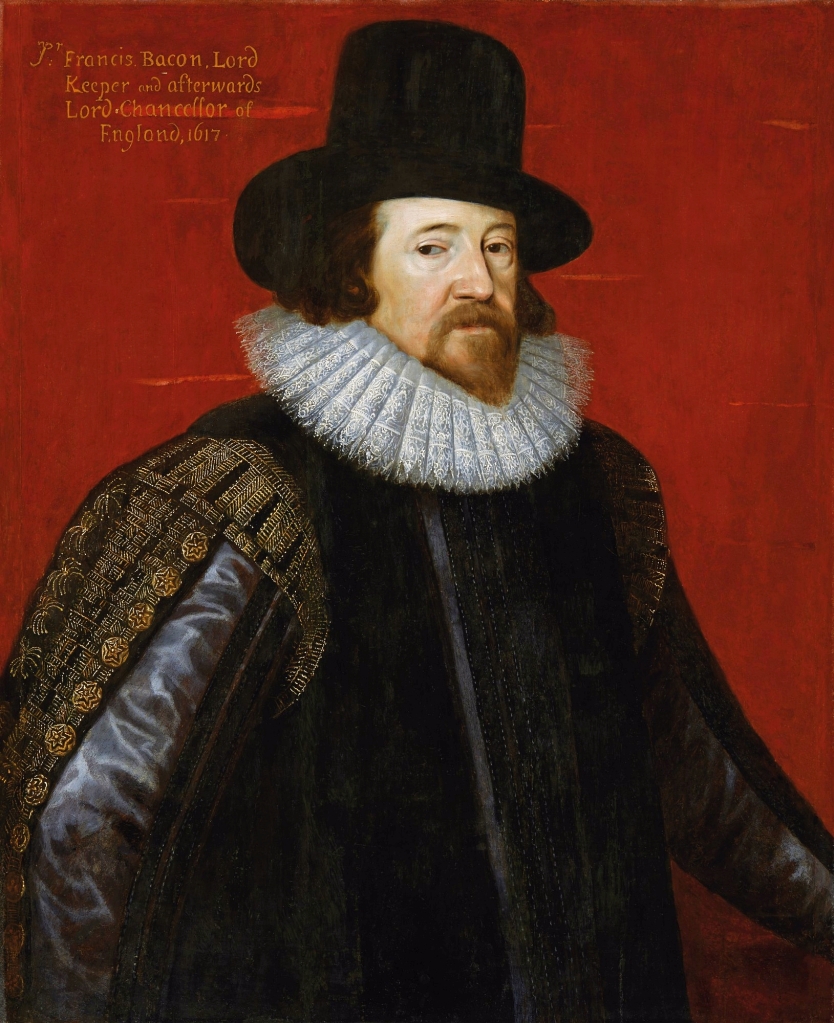
Portrait of Francis Bacon by Paul van Somer 1617 Source: Wikimedia Commons
A prolific author of polemical text, he gets labelled the father of empiricism, the father of the scientific method, and even the father of modern science. Regular readers of this blog will know, without asking, that I reject all three labels. In fact, I go much further, rejecting the deification of Francis Bacon in the hierarchy of modern science. First, and it gets said far too little, Bacon was not a scientist and secondly, he didn’t even understand science or, if it comes to that the scientific method. In my opinion, Bacon is not the signpost to the future of science that his fans claim him to be, but someone, who looks back at the development in science that had taken place in the recent past and collated, idealised, and systemised them, whilst projecting them into an imaginary future.
Bacon’s record on the leading scientific developments in the early seventeenth century is so abysmal that it is difficult to understand how anybody ever took him seriously as a philosopher of science.
His attitude to the already advancing mathematisation of the sciences was to say the least retrograde or even reactionary. In his writings he, like Aristotle, says that pure mathematics has no place in natural philosophy, because its objects are not material. At one point he specifically rejects the developments that had been made in algebra, as it had not been well perfected. He, also like Aristotle, allows mixed mathematics, even acknowledging an increasing list of areas where this applies listing, perspective, music, astronomy, cosmography, architecture, engineering, and diverse others. This list encapsulates many of the developments during the Renaissance that we have examined in various episodes of this series. However, he only allows mathematics a measuring role in the, for him all important, empirical investigations, but not a determining or philosophical one. It should, however, be noted that in his own examples of empirical investigations there are no quantitative tables of measurement. His attitude to the role of mathematics is best illustrated by his rejection of Copernican astronomy. Bacon feared abstract reasoning not based upon experience, and rejected purely theoretical science such as Copernican astronomy, a purely mathematical model. A model for which there was no empirical, observational evidence. One must admit, a fairly reasonable argument at the time.
Bacon rejected another important milestone in the history of science, William Gilbert’s De Magnete, which had been published in 1600. This was a work solidly based on experience, experiments, and empirical observations, so one would have thought that it would be acceptable to Bacon, but this was not the case. He criticised Gilbert heavily because although based on a wealth of experiments, he had made a philosophy out of the loadstone, indulging in extravagant speculation.
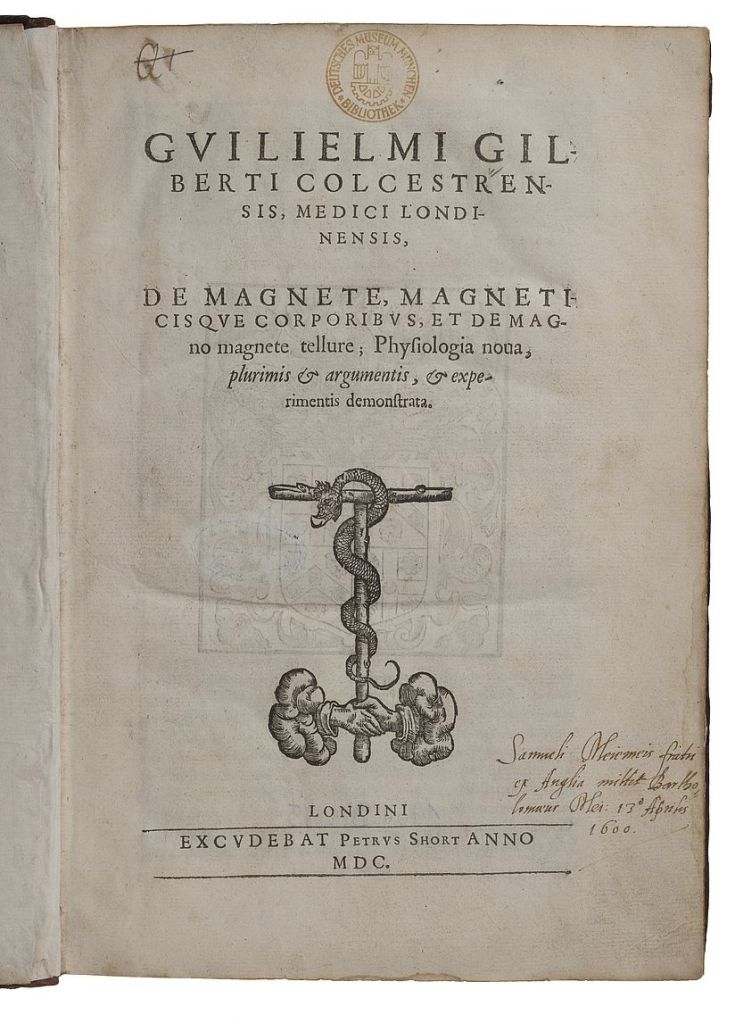
Perhaps surprisingly, Bacon also raised serious doubts about both the telescope and the microscope, empirical research instruments. He found Galileo’s initial telescopic discoveries admirable, but then there was nothing more and he thus found the handful of discoveries suspicious because they were so few and had then petered out. As I’ve noted elsewhere there was indeed a lull after 1613 in telescopic discoveries, which lasted until astronomers adopted the astronomical telescope, which had a much greater magnification than the original Dutch or Galilean telescope. Bacon, who was not an optician or astronomer, had no real understanding of that which he was criticising. His doubts concerning the microscope can possibly be excused as he died much to early to see any real results of microscopic investigations, although I wonder if he attended any of Cornelis Drebble’s public demonstrations of his Keplerian microscopes in the early 1620s.
There are three major publications outlining Bacon’s views on education, which include his views on natural philosophy and his thoughts on how it should be practiced i.e., his much-praised methodology. The first of these is his The Advancement of Learning from 1605. This is a polemic advocating for a general state sponsored education. The emphasis in this polemic is very much on religion and civics. There is very little in this work that in anyway relates to the developing sciences of the period and his highly abstract discussion of natural philosophy is, for a man who supposedly dethroned Aristotle, highly Aristotelian.
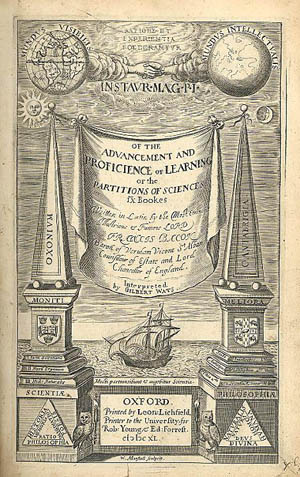
It is in fact first in his Novum Organum from 1620 that he seeks to dethrone Aristotle replacing, as the title states Aristotle’s Organon, his six books on logical analysis, which underly his physics, that is the description of nature, with Bacon’s own new empirical inductive logic, which is so often falsely claimed to be “the” modern scientific methodology.
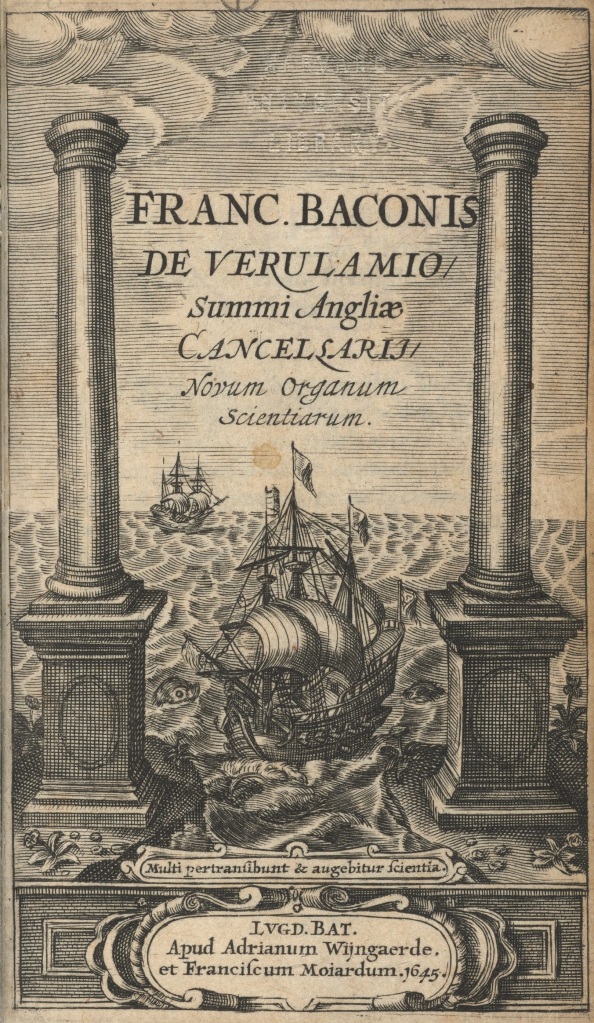
There of course being no singular scientific method and also those who believe there is one describe something very different to Bacon’s model. Bacon rejects Aristotle’s top-down methodology, which starts with supposedly obvious first principle or axioms to which deductive logic is systematically applied until one arrives at empirically observed facts. He wishes to replace it with a bottom-up system, which starts with empirically observed facts and then uses inductive logic to arrive at general statements derived from those facts.
Bacon’s system is very naïve and primitive and consists of creating lists of empirical observations. For a given phenomenon, the example Bacon uses is heat, he collects in a list all the empirical instances where heat occurs. He then complies a second list of all the instances where heat doesn’t occur. This is of course a major problem as, whilst not infinite, such a list would be impossibly long, so he makes some arbitrary decisions to reduce the list. He then compares the properties of the lists to eliminate any that appear in both lists. Finally in the parred down list of heat occurrences he removes those properties that are not in all instances, for example light, which is in fire but not in hot water. In the list that is left over the form (cause) of heat should naturally emerge. He explicitly warns against speculating too far from the acquired evidence.
This is of course not how science works. Is it argued that Bacon plays an important role in the development of the scientific method because he suggests experimentation as a method to produce more empirical instances. Of course, Bacon is not the first to introduce experimentation into scientific research, alchemy, which Bacon disdained, had been using experimentation for centuries and experimental laboratories were a feature of Renaissance science. Bacon’s insistence on empirical observation and induction appears to me to be a very similar, but formalised, approach to that of the work of the Renaissance researchers, who developed the materia medica and botany.
I think the best comment on Bacon’s approach was supposedly made by William Harvey, in his Brief Lives, John Aubrey tells us that Harvey:
“had been physitian to the Lord Chancellour Bacon, whom he esteemed much for his witt and style, but would not allow him to be a great Philosopher. Said he to me, ‘He writes Philosophy like a Lord Chancellour,’ speaking in derision, ‘I have cured him.’”
One of the most often referenced of Bacon’s texts in his utopia, The New Atlantis, the House of Salomon in which supposedly inspired the foundation of the Royal Society. It was never completed and first published posthumously.
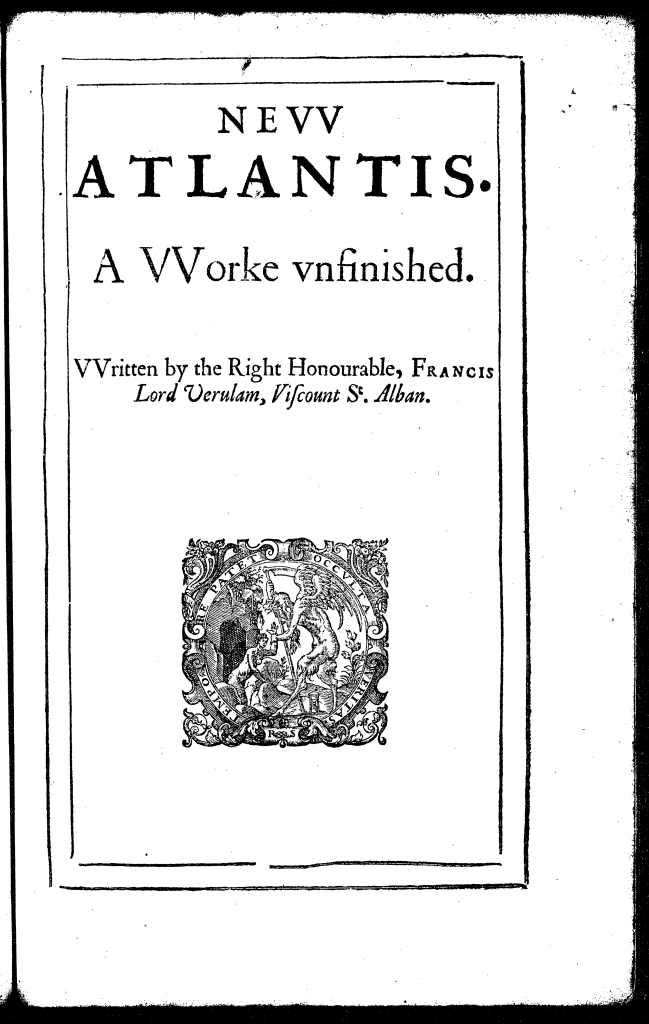
In the modern English version that I own, it is forty-nine pages long and the first thirty-six pages tell the story of a ship blown of course arriving at the Island of Bensalem, apparently Bacon’s concept of an ideal society. I’m not going to describe the culture of Bensalem, which appears to me to be basically a form of theocracy but will briefly sketch his account of the House of Salomon. The official of the House of Salomon, who gives a verbal guided tour to the book’s narrator, a member of the ship’s crew, who is not more closely identified, just rattles of long lists of all the wonderful things that each section or division of the house contains. There is no real attempt to describe the science that produced these wonders or explain the methodology behind them. In general, large parts of this pean to the scientific achievements of the Bensalemites read like an idealised cross between the Renaissance botanical gardens of Northern Italy and the curiosity cabinets of the German aristocrats. In fact, elsewhere Bacon suggests that systemised curiosity cabinets could be used for his type of inductive scientific research. Some of them, such as that of Rudolf II, were already used for scientific research but not using Baconian methodology.
Returning to my original position, I contend that Bacon is not the father of modern science shining a methodological beacon into the future of scientific research but rather a man with very little real understanding of how science works, who held up a mirror, which reflected various aspects of the Renaissance science that had preceded him.